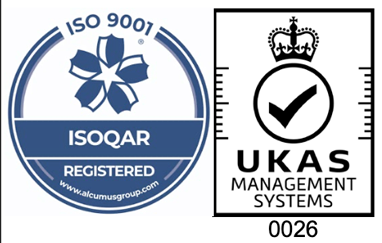What Oil and Gas Products do Aquaseal Rubber provide?
28th July, 2025
The oil and gas industry is crucial to the global economy because of its influence on transportation, electricity and manufacturing, all whilst contributing to energy needs and output.
Applications used in the oil and gas industry must have a range of appropriate characteristics to ensure quality, safety and efficiency. Rubber for oil and gas industries should be engineered to withstand extreme temperatures, high pressure and exposure to oil, gas and other chemicals.
This expert guide will offer an overview of the bespoke products Aquaseal Rubber provide for oil and gas applications, as well as the best materials to use for these products to optimise performance and maximise longevity.
Rubber products for oil and gas
Because of the very particular and demanding nature of the oil and gas industry, rubber products must be manufactured carefully and appropriately to suit their applications.
From choosing the right rubber seal for your application to maintaining and expanding the lifetime of your rubber hoses, Aquaseal Rubber are here to help ensure you select the right products and right material for your custom project.
We offer multiple rubber products, made from a range of materials, that are suitable for use in the oil and gas industry.
Rubber gaskets
A rubber gasket can be used as a seal for a range of purposes across different applications. Usually compressed between two surfaces, rubber gaskets must be flexible to ensure they work appropriately.
In the oil and gas industry, rubber gaskets are used to prevent leakage between two compressed surfaces because over time, the joints may corrode and break without a suitable gasket.
Rubber gaskets can be made from multiple materials. Nitrile rubber provides excellent resistance against most fluids and oils, while neoprene is weather, fuel, chemical and flame resistant. Or, silicone is an ideal option if you are looking for a rubber gasket with a wide operating temperature range and good ageing and ozone resistance.
Rubber extrusions
Bespoke rubber extrusions are often used for noise control or sealing and protection in industries including automotive and the marine sector. They create strong, durable seals and provide reliable performance in harsh conditions, like those experienced on oil and gas rigs.
Rubber extrusions can reduce vibrations and impact by acting as a buffer between offshore rigs and vital equipment, including vessels, but they can also prevent crucial pipelines by creating airtight seals and preventing leaks.
EPDM rubber is often used in rubber extrusions for its resistance to weather, ozone and high temperatures, but nitrile is resistant to abrasion and substances including oil and fuels, making it another good option depending on the use of your rubber extrusion.
Rubber D Fenders
Since vessels and rigs endure constant ongoing strain from knocks and bumps which cause damage and erosion, rubber D fenders are used to absorb shocks and vibrations. Rubber D fenders work by absorbing energy from these knocks and distributing it across the surface to minimise direct impact and damage on vessels and rigs.
When a vessel docks at an oil rig, it may make contact with the rig itself. To prevent any unnecessary damage, rubber D fenders enhance marine safety to reduce detrimental impacts between rig and vessel and increase the lifespan of the facilities.
Choosing the right rubber D fender for your vessel or rig is crucial. Natural rubber has a high degree of wear resistance and tensile strength, as well as good flexing capabilities at low temperatures, whilst Styrene Butadiene Rubber (SBR) – which is very similar to natural rubber – is resistant to chemicals, solvents and extreme heat.
Rubber hoses
Rubber hoses are ideal for transporting liquids, including oil, diesel, chemicals and water, and abrasive media, such as cement and gravel.
In the oil and gas industry, rubber hoses play a crucial role in safely and efficiently transferring liquids and gases. They are used to extract and process petroleum, distribute fuels and lubricate systems, and transport waste.
Depending on the use of the rubber hose in the oil and gas industry, different materials will be used. Fluoroelastomers, which are resistant to chemicals, oil and heat, swelling, weather and acids, as well as having a low gas permeability, are a synthetic rubber compound which offers long-lasting reliability in harsh conditions. Butyl rubber also has low gas permeability and resistance to various chemicals and weather conditions, making it suitable for use when dealing with gases. Selecting the right material for your bespoke rubber hoses, especially for use in the oil and gas industry, is a vital process.
Rubber sheeting
Rubber sheeting is used in gaskets, o-rings, electrical insulation and food processing. However, in the oil and gas industry, rubber sheets are essential for creating gaskets and seals that withstand corrosive chemicals and high-pressure conditions.
Viton rubber is a strong option for use in this industry because it can withstand high temperatures and exposure to chemicals, helping to maintain safe and efficient operations at oil and gas rigs. Viton rubber sheets protect pipelines, storage tanks and valve systems from leaks and degradation.
Choosing Aquaseal for oil and gas rubber
Despite using a durable rubber material with a long lifespan for your oil and gas applications, several factors cause rubber to deteriorate after certain periods of time.
Rubber products in the marine industry may seem complex and important to get right in order to prevent your vessel or offshore rig, but at Aquaseal, we have many years of working with clients to meet their bespoke rubber needs. Contact us to see how we can support your project.


